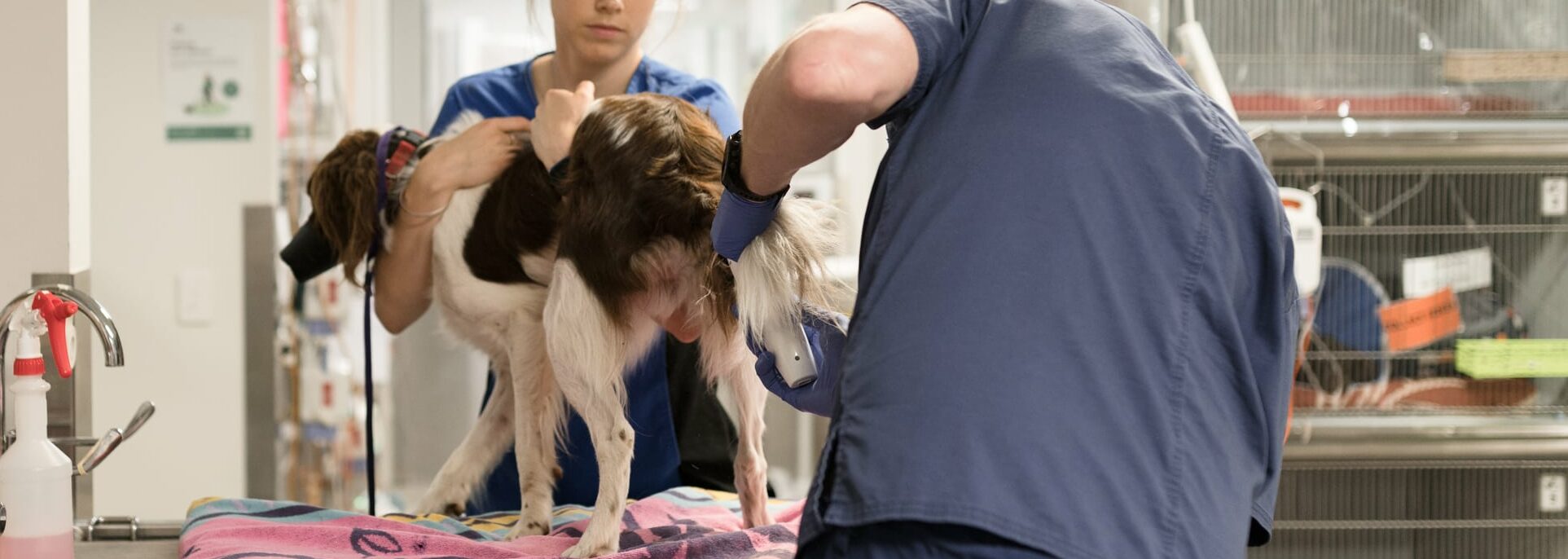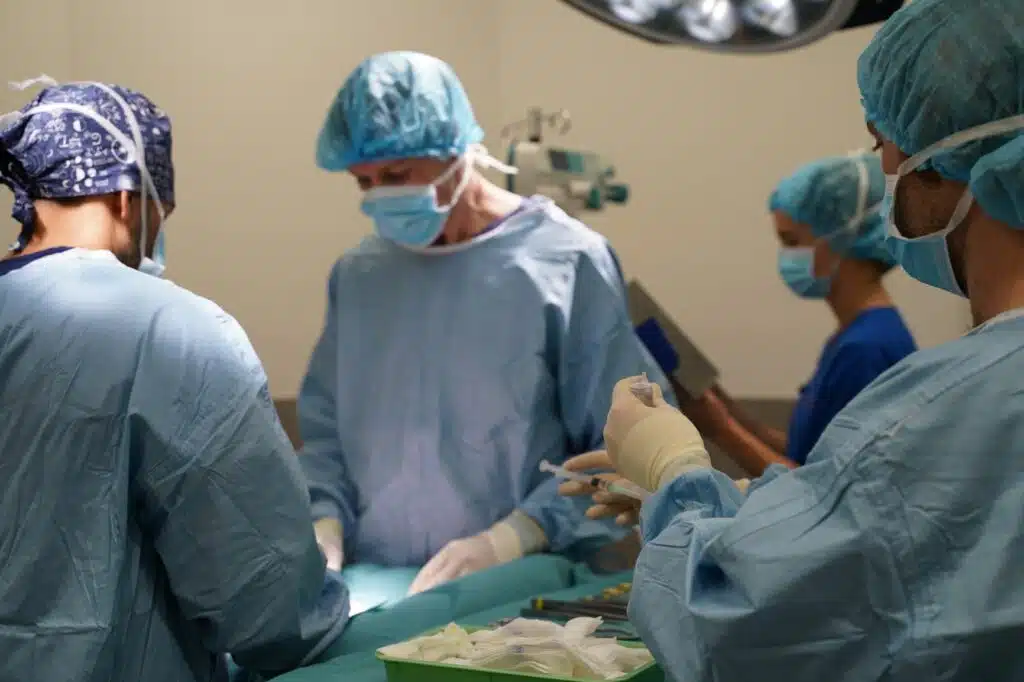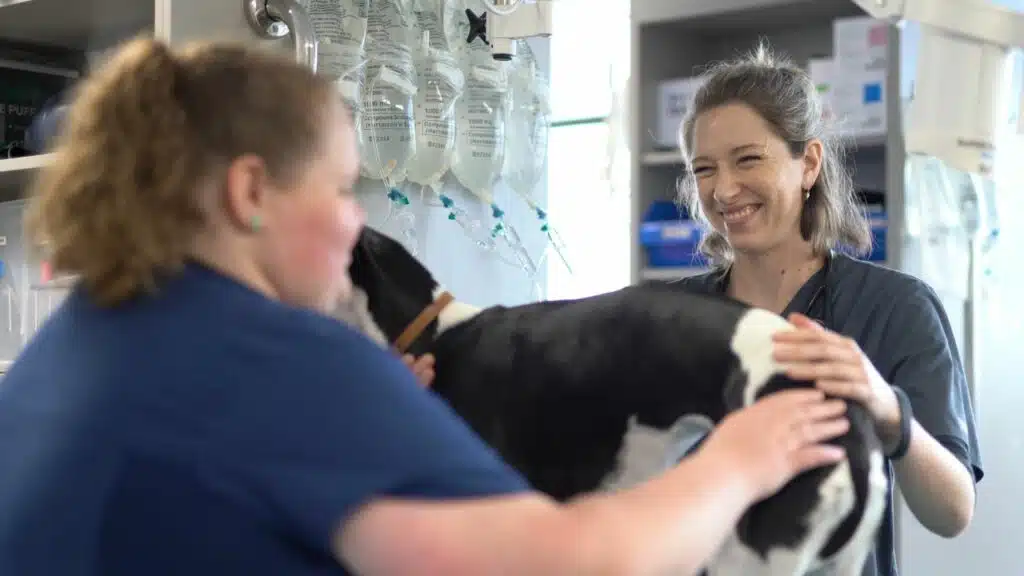As we discussed in our previous article, not all grad programs are created equal. Great grad programs offer a solid foundation of education, mentorship, and support to provide an invaluable experience for your chosen career path. While others may offer no true value, instead assigning you with work that’s not helping you to grow.
It’s vital to be able to identify when a mentorship is more of a hindrance than a help, but it’s not always easy to see when this is the case, especially ahead of time. That’s why we’ve put together this useful list of Red Lights, which highlight the aspects of poor graduate programs that you should be aware of in order to avoid.
So what are the 5 Red Lights that you should be looking out for? Read ahead to find out:
Red Light #1 – You’re Assigned All the Dirty Work
As a new vet, you have to accept that you need to learn the fundamentals – like writing histories, learning computer systems, simple hospital procedures and surgeries, and basic consults so that you learn the process of consultations. These may not sound exciting, but in order for you to become an integrated team member those fundamentals are important. However if that is all that you end up doing, then that’s a red light that you are seemingly being assigned all the ‘dirty work’.
If your mentor keeps assigning you the same tasks or simple tasks that you have developed competency in, then stop and consider if this grad program is really worth your time. A graduate program should be a progressive upskill in your knowledge and abilities. Your mentor should be teaching you new things and skilling you up on every shift. Observe other interns who have been in the program for a period of time – if they’re still performing low level tasks, then this should be a clear warning sign.

Red Light #2 – No Clear Mentor
In our series of articles on mentorship, we discussed the importance of mentorship as part of a graduate program. Being assigned a mentor who is committed to your growth and development as a veterinarian is one of the most important factors in success. If a grad program can’t provide you with a mentor, one person who is trained and has a structured program they can guide you through, someone who knows how you’re progressing, then you may find yourself floating around directionless.
Poor graduate programs are likely to have you bouncing around being told different things by different people because no one has been allocated the responsibility of supporting you, giving you feedback, training you and explaining to you what you need to do to succeed in your position. The business needs to see the value in investing time in you, as they won’t get the best out of you if they don’t.
Red Light #3 – Lack of Allocated Tasks
This may seem counterintuitive in a busy veterinary hospital, as there’s often so much to do and every shift is different. But you may find yourself struggling to know exactly what to do if your mentor/supervisor has not assigned tasks for you to learn. They might be busy, don’t want to spend the time delegating tasks and supporting you, or they consider interns as a burden that they have been tasked with and they would rather do something else.
What this looks like is you wandering aimlessly around unsure what to do, feeling directionless and in the way of other people. If this happens, we recommend you arrange a meeting with the manager to talk through your concerns and get clarity for yourself and perhaps also for your mentor on your assigned tasks and where you should be spending your time to ensure you are being given opportunities to learn and also being able to help out the team.

Red Light #4 – No Structured Training
An organization that isn’t committed to investing the time and resources into training their interns may not be the best company to work for. Interns need direction and should be taught the fundamentals before being thrown into the job. Without any formal training, it’s hard to understand what is expected of you and difficult to show initiative.
For example, in emergency work where the patients are critically ill or severely injured, it’s important to know how to intervene rapidly and stabilise a patient, so that you can help out while learning new skills. As time goes on, you can eventually assist with managing patients without waiting for direction or guidance. One of the key reasons why grad programs are created is to expose you to trickier cases while teaching the background information – like the disease pathophysiology, management principles as you progress.
Structured training in combination with exposure to cases will help rapidly propel your clinical skills and knowledge. This will make it easier for you in the consult room when communicating with clients what is happening and what needs to be done for their pet. A graduate program without this structured training is not setting you up for success.
Red Light #5 – No Clear Goals
Without being provided with a structured program with clear goals and objectives at the start of the graduate program, then it’s difficult for you to know what is expected of you in your role as an intern. Importantly, how will you know if you have succeeded as an intern if you don’t know what the goalposts are? Clarity is essential. Know where you stand, what needs to be accomplished, when are your follow ups or check in’s, where you should during different stages, and what training you need to complete and by when.
Being told that you will get support and training is great, but having it clearly documented out in milestones is far more useful. A grad program being clear about what these goals look like will give you the certainty that you need to know that you made the right choice.
So, if these are some of the main red lights with grad programs, how can you avoid these experiences and instead land an graduate program that will add value to your resume and help you grow as a young professional? By focusing on the positives and pursuing those! In our next article, we’ll discuss the Green Lights of Great Veterinary Grad Programs.




